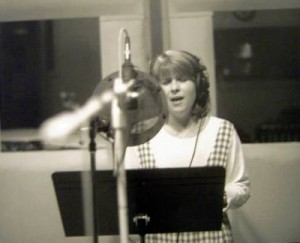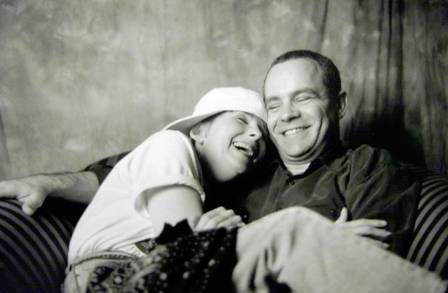“This is a pleasant surprise, Archie. I would not have beieved it. That of course is the advantage of being a pessimist; a pessimist gets nothing but pleasant surprises, an optimist nothing but unpleasant.”
Rex Stout, Fer-de-Lance
Terry Teachout on the arts in New York City
“This is a pleasant surprise, Archie. I would not have beieved it. That of course is the advantage of being a pessimist; a pessimist gets nothing but pleasant surprises, an optimist nothing but unpleasant.”
Rex Stout, Fer-de-Lance
In today’s Wall Street Journal I chronicle the best theater of 2020—all of it in the form of streaming webcasts. Here’s an excerpt.
* * *
The last time I went to a theater was in early March, when I reviewed the off-Broadway premiere of Katori Hall’s “The Hot Wing King.” Like everybody else in the civilized world, I was well aware of the Covid-19 pandemic, but it had never occurred to me that a week later all the theaters in New York would be locked up tight and I would be confined to my Manhattan apartment until further notice. No sooner was the lockdown order issued, though, than I realized that I’d need either to discontinue my weekly drama column or approach it in a radically different way.
Within a week, the solution had become clear to me. San Francisco’s American Conservatory Theater and Syracuse Stage, located in upstate New York, announced that they would be streaming broadcast-quality videos of stage productions that were already in previews at the time of the lockdown. Several other regional theater companies followed suit, and I thought—perhaps I should say hoped—that more such webcasts would soon fill the electronic pipeline. Sure enough, regional companies of all kinds started putting their shows online….
I believe that webcasting is destined to become a permanent part of the ecology of regional theater. Why? Because it will be a long time before playgoers, especially older ones, feel safe going to the theater again. If that’s right, then it’s nothing short of irresponsible for regional theaters of all sizes not to put their work on the web….
* * *
Read the whole thing here.“To assert dignity is to lose it.”
Rex Stout, The League of Frightened Men
“There is nothing like infantilism for keeping the eyes bright and the skin smooth.”
Rebecca West, The New Meaning of Treason
From 2007:
Read the whole thing here.I’m writing these words at nine a.m. on Christmas Eve. Not a creature is stirring, not even Mrs. T, who isn’t a morning person, or my mother, who went to bed gratefully last night and with any luck will sleep a little while longer. The sun is shining in Smalltown, U.S.A., something it evidently felt no need to do last week. I showed up on Thursday after a more than usually tedious eleven-hour journey and plunged myself into the complicated routine of taking care of my seventy-eight-year-old mother, who broke her pelvis two months ago. Mrs. T flew out to Smalltown to look after her while I wrapped up my remaining deadlines for 2007, and now I’m here, too, making coffee, running errands, and exuding all the good cheer I have in me….
“Those who foresee the future and recognize it as tragic are often seized by a madness which forces them to commit the very acts which make it certain that what they dread shall happen.”
Rebecca West, The New Meaning of Treason

Nancy and I met seventeen months before she died. I was interviewing her for the New York Daily News, and we realized on the spot that we liked one another very much. I took her to a performance of George Balanchine’s ballet version of A Midsummer Night’s Dream a few weeks later, and we went to dinner together after the show, talking until the restaurant closed. From then on we were the best of friends, exchanging regular phone calls in which we heedlessly shared the most intimate of confidences. I can still hear in my mind’s ear her warm alto voice on my answering machine, always starting off with a cheery “Hi, LaMottski here!” (Nancy was the kind of person who spoke in exclamation points.)
I wrote about her many times, but never succeeded in fully conveying her sheer goodness, though I tried hard to capture it on paper. Not that it mattered, for you didn’t have to know Nancy to hear in her radiant singing the kind of woman she was. She called herself “a major-chord singer,” which was exactly right: for all the sophistication of her art, she was still a small-town girl at heart, sweet and generous and uncomplicated, and she knew how to be happy.

As I wrote in The Wall Street Journal when Live at Tavern on the Green, the album of her last opening-night performance there, was released in 2005:
I won’t pretend to be objective about Nancy—we were too close for that—but I was hardly the only critic to know her for what she was. John Simon, one of the toughest customers in New York, said that “she fully fathoms what a song is about, and then, rather than merely singing it, lives it.” Stephen Holden put it a different way in her New York Times obituary: “She brought to everything she sang a clean, clear sense of line, impeccable enunciation and a deep understanding of how a good song could convey a lifetime’s experience.” All this is on Live at Tavern on the Green, along with a special quality I tried to put in words when I wrote in the New York Daily News that she sounded “sincere and sensuous at the same time, as if the girl next door had snuck out at two a.m. to make a little whoopee with her steady boyfriend.”
Nancy and I felt from the start as though we’d always been friends. We loved one another deeply and devotedly, though never in a romantic way. She met Peter Zapp, a gifted stage actor, in San Francisco in May of 1995, and I knew as soon as she told me about him that she had found the man of her dreams. I rejoiced with her, and became good friends with Pete once we finally met. (Nancy and I both found it wildly funny that she saw him for the first time when he was playing Roy Cohn in Angels in America.) Theirs, alas, was destined to be a brief love, for her long-precarious health—in addition to metastatic cancer, she had Crohn’s disease and wore an ileostomy bag—crumbled in December. Pete flew back to New York at once, but it was clear by then that she was dying, and I rushed to the hospital to keep vigil with him and a few of her closest friends.
Late that night, the doctors told Nancy that she was near death and offered her opiates to relieve her agonizing pain, explaining that they would send her into a coma from which she would not awaken. Pete had proposed to her the day before, and now she told him that she wanted the morphine—but that she wanted to marry him first. I fed quarters to the pay phone in the corridor outside her room in order to find a priest who could come right over, then stood by her bedside as she and Pete said their vows. She died an hour and a half later.

Losing Nancy was the worst thing that had ever happened to me, and it was not until I lost my Hilary under similar circumstances last March that I experienced anything that surpassed it. As a result, years went by before I could bear to listen to Nancy’s records again. Even now I don’t play them as much as I ought to, something that would have saddened her, though she would, as always, have understood.
I did, however, make a point of playing her records for Hilary, who loved them, and on the terrible night that my own life’s companion died, I posted a link to a medley of two songs from Stephen Sondheim’s Merrily We Roll Along that Nancy had recorded in 1993, knowing that the lyrics summed up everything I was feeling: Not a day goes by,Where’s the day I’ll have started forgetting? Beth sings in the same song, knowing all too well that there is no forgetting such people. To be sure, I no longer think about Nancy every single day, and I suppose it is possible that a time may also come when I no longer think about Hilary every day, either. But I know that each time I do, I will remember them both with tender gratitude for the blessing of their having been part of my life. That is true love.
* * *
Nancy LaMott sings “Moon River,” by Johnny Mercer and Henry Mancini, accompanied by Christopher Marlowe. This was the last song she ever sang, on Charles Grodin’s TV show a week before her death:
| M | T | W | T | F | S | S |
|---|---|---|---|---|---|---|
| 1 | 2 | |||||
| 3 | 4 | 5 | 6 | 7 | 8 | 9 |
| 10 | 11 | 12 | 13 | 14 | 15 | 16 |
| 17 | 18 | 19 | 20 | 21 | 22 | 23 |
| 24 | 25 | 26 | 27 | 28 | 29 | 30 |
An ArtsJournal Blog